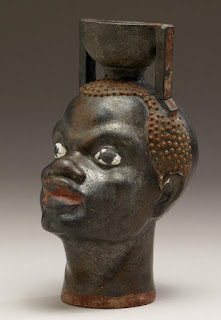Experts say Greece is all but bankrupt
ATHENS, Greece — Bulldozers lie abandoned on city streets. Exhausted surgeons operate through the night. And the wealthy bail out broke police departments.
A nearly bankrupt Greece is taking desperate measures to preserve cash. Absent a last-minute deal with its creditors, the nation will run out of money early next month.
Two weeks ago, Greece nearly defaulted on a debt payment of 750 million euros ($825 million) to the International Monetary Fund.
For the rest of this month, Greece should be able to cover daily cash deficits of around 100 million euros, government ministers say. Starting June 5, however, these shortfalls will rise sharply, to around 400 million euros, as another IMF obligation comes due. They will then double in size on June 8 and 9.
“At that point it is all over,” said a senior Greek finance official who spoke on the condition of anonymity.
On Sunday, Interior Minister Nikos Voutsis said there would not be enough money to pay the IMF if there was no deal by June 5.
In a society that has lived off the generosity of the government for decades, the cash crisis has already had a shattering impact. Universities, hospitals and municipalities are struggling to provide basic services, and the country’s underfunded security apparatus is losing its battle against an influx of illegal immigrants.
In effect, analysts say, Greece is operating as a bankrupt state.
The government’s call to conserve funds has been far-reaching.
All embassies and consulates — as well as municipalities throughout the country — have been told to forward surplus funds to Athens. Hospitals and schools face strict orders not to hire doctors and teachers. And national security officials complain they are under intense pressure to keep military air and sea missions to a minimum, at a time when migrants from Africa and the Middle East are rushing to Greece’s shores.
Even the swelling ranks of investment bankers, lawyers and consultants advising the Finance Ministry have been told that, for now at least, their work is to be considered pro bono.
Since its first bailout in 2010, Greece has been forced by its creditors to cut spending by 28 billion euros — quite a sum in a 179 billion euro economy. A proportional dose of austerity applied to the United States, for example, would come to $2.6 trillion.
During the past six months, a period during which Greece has had its credit line revoked over disagreements with Europe regarding economic overhauls, the state has been forced to wield an even sharper knife.
For a generation of Greek politicians who saw government spending (and borrowing) as a national birthright, the idea of deploying only the money at hand has been jarring.
But for other Greeks who are eager to break from the country’s tradition of dispensing political favors to the well-connected, these years of imposed restraint have also provided a valuable lesson.
“There are no free rides in this country anymore,” said Kostas Bakoyannis, 37, governor of the Central Greece administrative region. “The old parties — they never spoke truth to the people. Now we have to live on what we can make and produce.”



